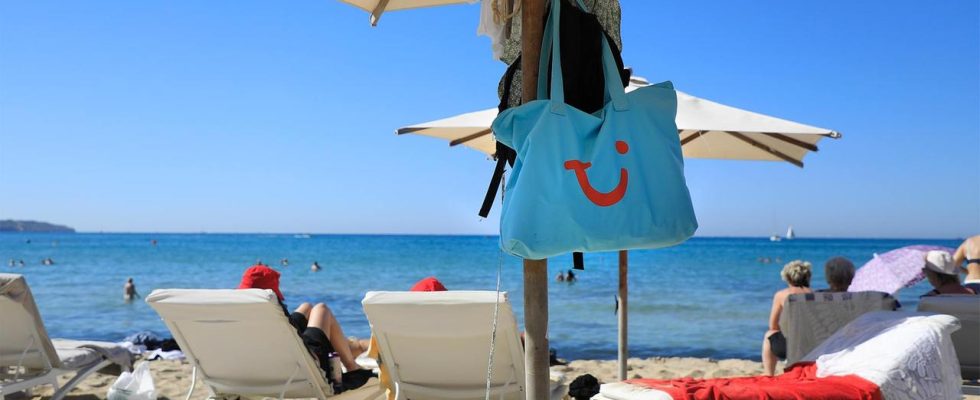The world’s largest travel group TUI has recorded record sales. But more and more Germans can no longer afford a vacation at all. Are the providers exaggerating their prices?
Things could hardly have gone better: it was a great summer for hoteliers, airlines and rental car companies. Whether in Spain, Turkey or Greece – the cash registers were ringing everywhere. Also with the tour operators. And so the world’s largest travel group, TUI, posted record sales for the financial year that ended at the end of September.
Price increases of more than 20 percent
After the Hanoverians were able to more than double their pre-tax profits, the group is back in the black for the first time since the Corona crisis. The bottom line is that TUI earned around 456 million euros, after a loss of over 213 million in the previous year.
To achieve this, however, customers had to dig deep into their pockets. The high “sales were achieved primarily through price increases,” says Michael Gierse, tourism expert at the fund company Union Investment. “That means prices are over 20 percent higher than before Corona, while passenger numbers are still a little more than ten percent below 2019.”
Like all tourism companies, TUI managed to pass on the sharp rise in prices for fuel, energy, staff and food to its customers – and apparently significantly more. Because the price increases are well above the high inflation rates of the past few months.
Appeal from the travel association
The travel company is therefore likely to be one of the companies that the European Central Bank (ECB) has repeatedly accused of increasing prices beyond what was necessary – a phenomenon also known as “greed inflation”. German companies in particular should be particularly creative here, we hear again and again from central bank circles.
Even the German Travel Association (DRV), which is otherwise rather cautious about criticizing its members, does not want to rule it out. Of course, high inflation worldwide has caused the costs of all providers to rise sharply, says Torsten Schäfer from the DRV. But you shouldn’t overdo it either.
That’s why “we call on everyone, both holiday destinations, airlines and of course tour operators as a whole, not to over-inflate prices,” says Schäfer. Vacation must also remain affordable for average earners.
Problem about for single parent
However, this is becoming increasingly difficult for more and more people. According to a study by the Editorial Network Germany (RND), more than 20 percent of all Germans can no longer afford a summer vacation. That’s about one in five. Ascending trend. The sharp rise in costs for energy, food and housing no longer leaves them with any financial leeway. This is particularly true for single parents with children.
Large parts of the travel industry view this with unease. Especially in the area of cheap travel – a not insignificant market segment – customers are falling away. In fact, the number of package holidays this year is still twelve percent below pre-Corona levels. The German Travel Association also sees politics as having a duty here. “Demand needs to be stimulated here, there needs to be relief from politics,” says Torsten Schäfer. “Overall, it’s about people having more money in their pockets for consumption again.”
There is also little all-clear for the upcoming winter and summer seasons. The inflation curve is also flattening somewhat in the tourism sector. However, the industry still expects prices to continue to rise. This is of course good news for TUI shareholders: The stock, which was badly hit during Corona times and was sometimes just a penny stock, temporarily rose by up to eleven percent yesterday.

